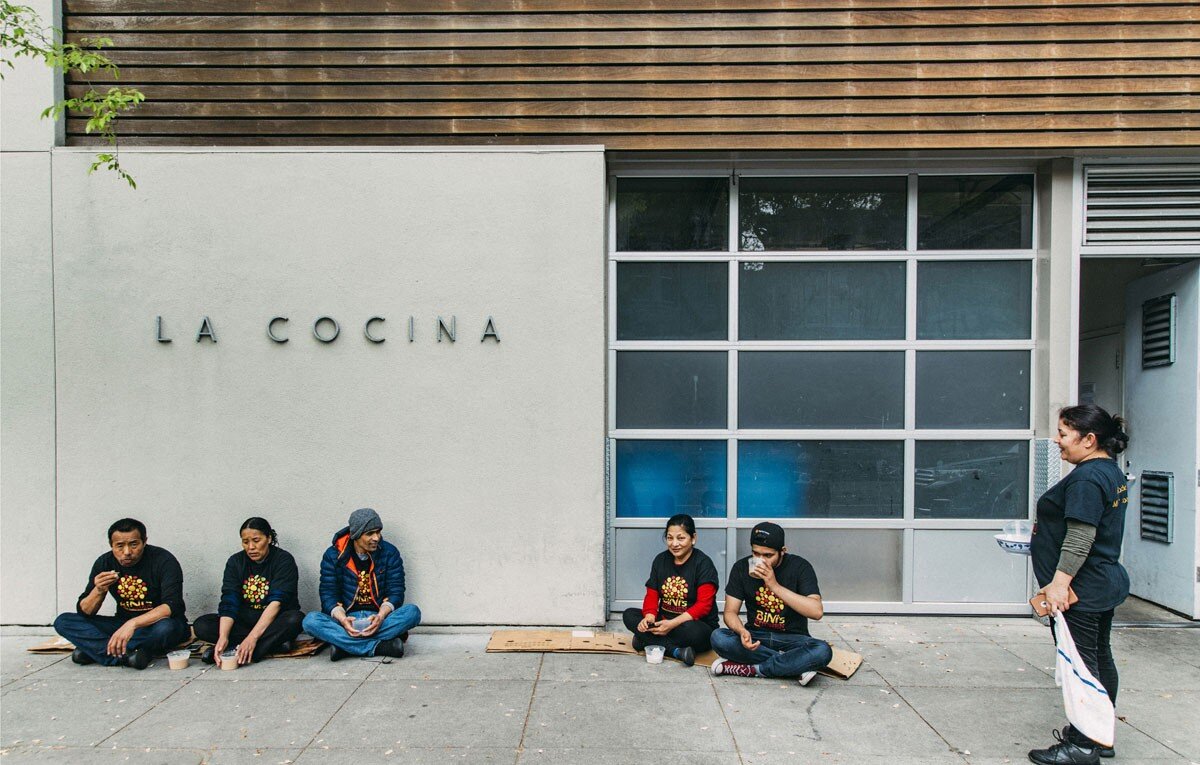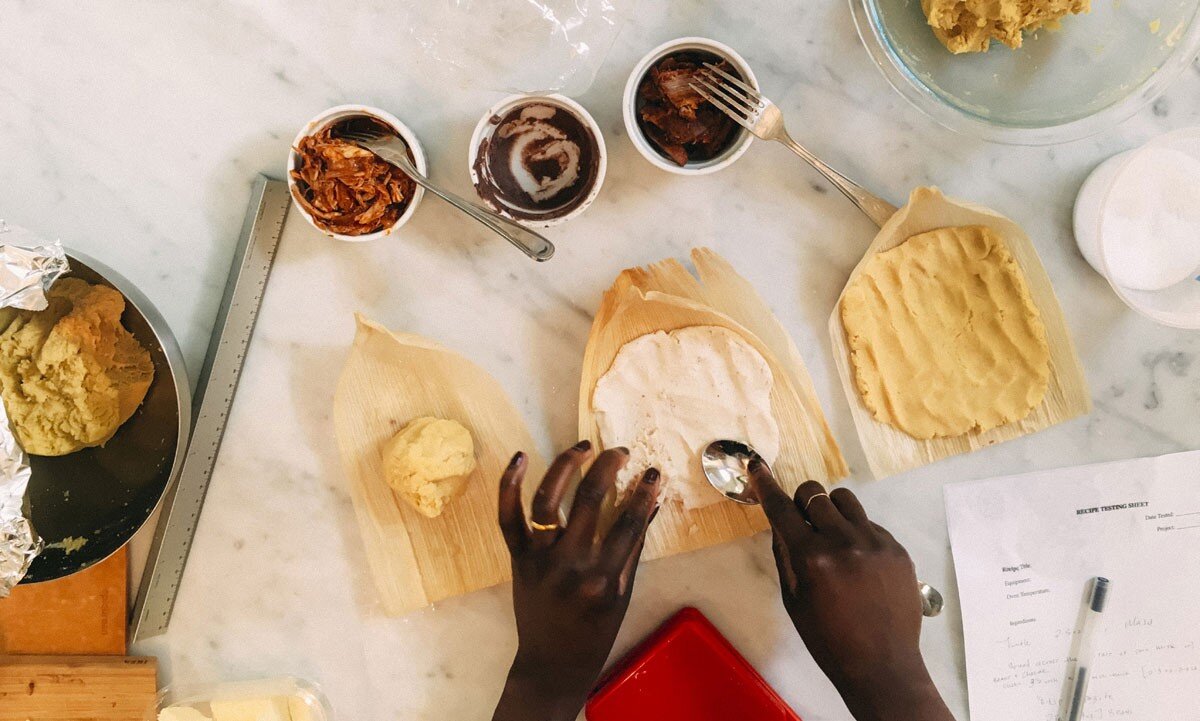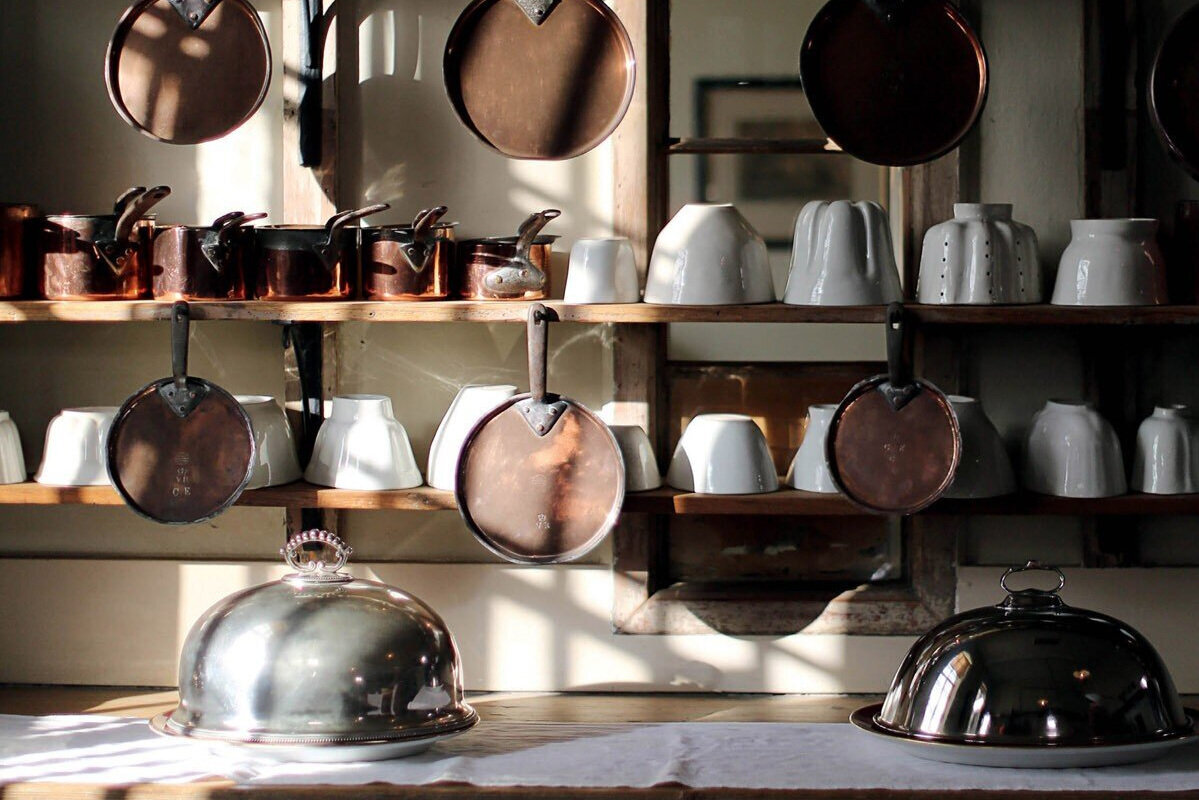Advertisement
Behind the Cookbook: We Are La Cocina
30 June 2021 · Behind the Cookbook
La Cocina is making waves. Based in the San Francisco Bay Area, La Cocina describes itself as, “a nonprofit business incubator dedicated to supporting talented working-class food entrepreneurs, primarily immigrant women and women of color.” It has helped to launch numerous food businesses, and the careers of chefs such as Reem Assil, of Reem’s Mission and Nite Yun of Nyum Bai restaurant, both with restaurants in the Bay Area.
The San Francisco Chronicle has referred to La Cocina as, “arguably San Francisco’s most beloved food nonprofit that’s launched the careers of chefs with national clout.”
In April this year, after a lengthy period of preparation interrupted by the pandemic, La Cocina opened the ambitious new food hall, La Cocina Municipal Marketplace (“the nation’s first women-led food hall”), in the Tenderloin district, to the praise of critics and press. The organization has been hugely influential, in the US and beyond – the co-founders of the newly launched Mission Kitchen in London cite La Cocina as a source of inspiration.
We Are La Cocina, published in 2019, showcases the organization’s exceptional talent, with stories and recipes from the chefs who share a kaleidoscopic range of backgrounds, from Mexico, Cambodia, Iraq, and beyond.
In these extracts from the book, La Cocina’s founders and supporters introduce the organization’s mission and its cookbook.
Caleb Zigas, executive director
La Cocina was born out of San Francisco’s Mission District in the 1990s, a vibrant neighborhood with an active informal economy; people, mostly women, selling food on the streets and out of their homes as a way to patch income – a dollar here, a dollar there – in an uncertain environment.
The most basic belief of our organization is that in the often-forgotten corners of our cities – dense immigrant neighborhoods, low-income high-rise apartment buildings, the blacktops of taxi depots – talented food entrepreneurs thrive by making use of what’s available to them. Given access to affordable commercial kitchen space, high-level business advice, places to sell, and access to capital, those cooks and artisans are able to transition their side gigs into the formal economy (licenses, permits, and taxes … oh my!) and, in doing so, create real and lasting ownership opportunities for themselves and their families. This simple act of creation can inspire, and very often employ, the people around them.
In the years that we’ve been working in these communities, it remains abundantly clear the ways in which the world we live in is deeply inequitable. If opportunity were distributed evenly and everyone was given equal access to the marketplace, the food world would look a lot more like La Cocina. The food industry has never been more celebrated, and yet, this is a country where 75 per cent of food businesses are owned by men and where women in kitchens make, on average, 73 cents to a man’s dollar, even before accounting for race.
Because race, too, affects opportunity in our industry. According to the Aspen Institute, lack of access to capital and race-based discrepancies in wealth unduly disadvantage aspiring entrepreneurs of color as they pursue their culinary visions. As customers, we also bear responsibility; we’re willing to pay top-tier prices for handmade Italian pastas without flinching, but chafe at a bowl of hand-pulled Chinese noodles that costs more than $10.
This isn’t a book about restaurants, or even exclusively about food. Instead, it’s about the people that make your food, who open restaurants; not merely a glimpse behind the kitchen door of a talented chef but also a sustained and passionate argument for wider opportunity. These entrepreneurs, in the quiet work that they do in hidden kitchens across the country, represent the best of what our cities have to offer.
San Francisco was built on the backs of Native Ohlone farmers, Mexican tamale vendors, Italian fishermen, and Chinese noodle vendors, and every American place has a similar story. Our collective obligation, in an inclusive world, is to value all of these contributions honestly and equally.
Isabel Allende, novelist and supporter of La Cocina
“La Cocina is much more than an excellent business. It is a place of work and stories, a warm and fragrant hearth where women (and some men) prepare food from their countries of origin and share their lives. For most La Cocina entrepreneurs, a few recipes handed down from mothers and grandmothers were their only capital when they came to the United States. It seems almost magical that they can use those recipes as a means of self-expression, making a living, supporting their families, and preserving their culture. Through food, they too can aspire to the American dream.
Cooking brings people together. The kitchen is a safe place to tell our personal stories; no matter how tragic they might be, there’s always room for some laughter. We all need to be heard; we all want to know more about others. While cooking, women open their hearts and share their sorrows and joys; no one feels lonely in a communal kitchen. In many of my novels, food has an essential role because it helps me to define the characters and to give flavor and authenticity to the story. Eating brings people together as well, especially when food inspired by other cultures arouses our curiosity.
Today, as has often happened in the past, we live in hard times; division, distrust, and fear are rampant. But I have lived long enough to know that these hard times will pass and, eventually, the best of the human condition will prevail. In the meantime, maybe we can start to heal by listening to one another’s stories and sharing the food of diversity that La Cocina offers.”
Leticia Landa, deputy director
For many years (since Caleb and I wrote our first book proposal), we’ve been thinking about how we could organize the foods made in La Cocina’s kitchen into a cookbook. By continent of origin? By the time of day a meal is eaten? Dividing sweet and savory? By main ingredient?
In the end, we decided that strict categories would take away from the soul of our story. Instead, because this is a cookbook about people, we’ve organized it person by person. At the moment, Bini, Heena, Maria del Carmen, Shani, and Alma are all making truly delicious food in our kitchen. So we’re presenting you with the foods that La Cocina’s entrepreneurs love – without categorizing them. Some have picked the foods that they most enjoy cooking at home, and some have chosen the dishes they cook professionally, adapted for the home kitchen.
I hope this cookbook makes your kitchen smell like you’ve traveled around the world, that it encourages you to visit that hole-in-the-wall, immigrant-run spot you’ve been wanting (but keep forgetting) to try. I hope that you’ll make a steaming bowl of Nite’s Kuy Teav Phnom Penh the next time someone you love is under the weather.
Most of all, I hope that reading about all of these different foods will make you hungry to know more about the people who prepare them, whether you happen to live around the corner from La Cocina, in New Zealand, or somewhere in between.
A selection of popular recipes from We Are La Cocina
Find all the recipes from We Are La Cocina, in full, on ckbk.
Sign up for ckbk's weekly email newsletter
Related posts
Advertisement








